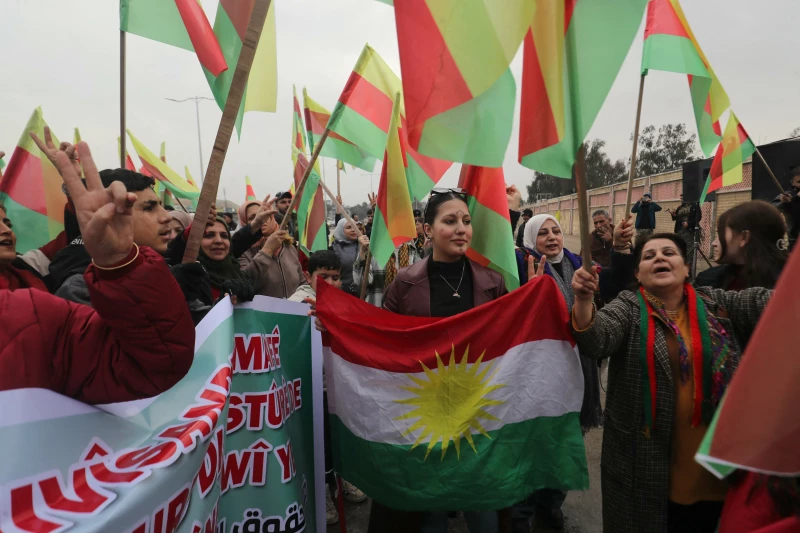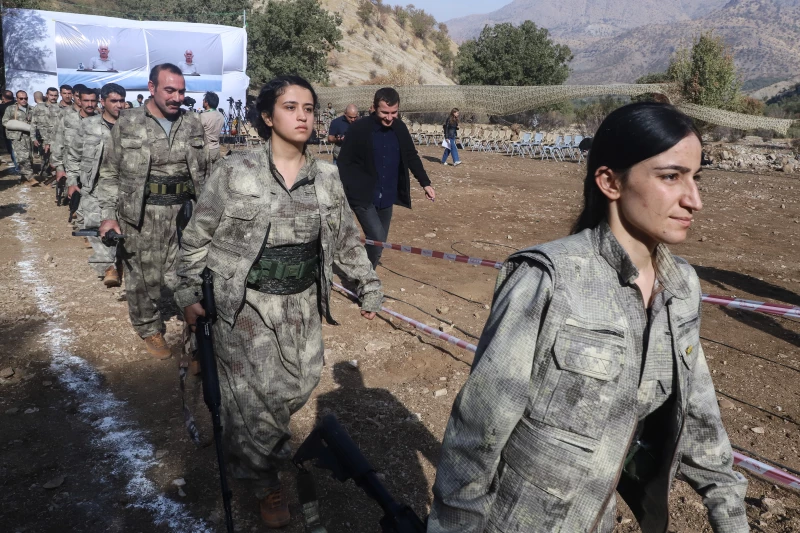On Wednesday, Syrian opposition forces under the control of the Islamic group Hay’at Tahrir al Sham (HTS) launched attacks on Syrian forces and have captured the city of Aleppo. As of this writing, they are moving at great speed southward. HTS is conglomerate of several Sunni Islamist groups and have opposed the government of Bashar al-Assad as well as opposing Hezballah forces in Syria. This action comes on the heels of Hezbollah in Lebanon announcing a ceasefire with Israel. Syria is supported by Russia and Iran and maintains relations with other Arab Muslim countries. Turkey is the outlier in the region and has been supporting HTS.
Turkey was founded as a secular republic in 1923. Its founding Father, Mustafa Kemal Ataturk, ensured that the state would remain secular with an amendment to the constitution in 1928 removing Islam as the religion of the state. Following this, in 1937 secularism was codified in the constitution and in 1937 the constitution stated that there will be no official religion, nor will the state promote any religion. Turkey was the seat of power for the Ottoman Empire which spread Islam across but began to crumble prior to the First World War and was defeated after its alliance with Imperial Germany.
Following its defeat, the Ottoman Empire was partitioned into what is now the modern Middle East, except for an independent Kurdistan, which was in the original treaty. Over the years Turkey has grown into a free and open society with economic and world power. Turkey was admitted into NATO and has maintained the second largest army of all NATO countries. Over the years however Turkey has turned away from the west and moved closer to its neighbors.
The current President of Turkey, Recep Tayyip Erdogan, has risen through the ranks of Turkish politics based on being a pragmatic politician pushing a reformist Islamic policy. Erdogan is also something of a Chameleon, changing direction as needed. Erdogan and his Party have secured power by being both reformed Islamist, and hardline nationalist. Recent elections have shown a move away from Erdogan’s Justice and Development Party (AKP) and toward both the old Kemalist Republican Party (CHP) and the New Welfare Party (YRP.) The YRP is a greater threat to Erdogan as it is a conservative Islamist party that can eat into his base.
We know how tenaciously Erdogan and the AKP have held onto power by rejecting legitimate electoral outcome to imprisoning opposition Members of Parliament, mostly Kurds, and playing on nationalism with the public and other actions. The move by HTS under the sway of Turkey may have several reasons. For HTS this is a continuation of its war with Assad and in the hopes of finally removing the Baathist regime and installing an Islamic government in Damascus. For Turkey it is a way to punish Syria with which it has a long and rocky relationship. This can be seen in the speed and violence of the HTS attack. If HTS is truly interested in removing Assad and marching on Damascus they will continue their move. However there seems to be a second more Turkish maneuver, turning on the Kurds. The Kurdish-led Syrian Democratic Forces (SDF) which is supported by the United States, but not under US forces protection, is a thorn in the side of Erdogan as he claims it is part of the Turkish-Kurdish armed group Kurdistan Workers’ Party (PKK).
The question is how independent is the HTS, or how much control does Turkey exert? Should Syria not be able to bring this to a quick end how far will Turkey try to extend its influence in the region? Should Erdogan perceive a need to create a crisis he will try to turn to the reemergence of the Ottoman. What would be his next target?
The views expressed in this article are those of the writer and do not necessarily represent the position of The New Region



 Facebook
Facebook
 LinkedIn
LinkedIn
 Telegram
Telegram
 X
X


